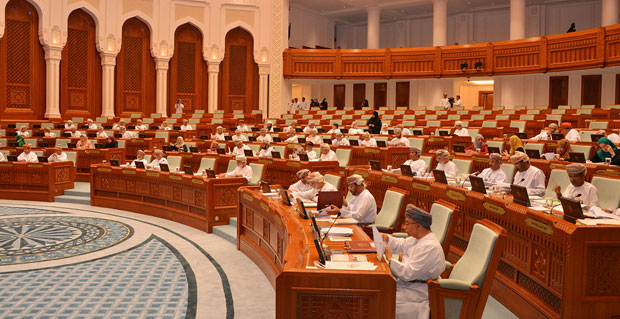
Muscat: Amid the slump in oil prices, and the Sultanate in the midst of an economic downturn, a special committee at the Shura Council recommended that a number of ministries and government institutions be merged to save money.
Get your essential daily briefing delivered direct to your email inbox with our e-newsletter
However, this might not be the most viable option and might force educated Omanis to leave the country, an employee from one of the ministries said.
“When our ministry started, it had qualified employees who graduated from Sultan Qaboos University. But after it was merged with the Ministry of Regional Municipalities and Water Resources, many of the qualified employees left for other companies, as they were left with nothing to do,” an employee from the Ministry of Environment and Climate Affairs, who has seen the different phases the ministry went through before, during and after the merger, told the Times of Oman.
The Ministry of Environment and Climate Affairs was established in 1974 as an environmental protection council and, in 2003, it was merged with the Ministry of Regional Municipalities, and then was split again in 2007.
The employee also thinks that the merging of ministries will negatively affect their overall performance.
“Neglecting well trained employees who hold masters and PhD degrees will cause them to join the private sector, as happened earlier when the two ministries were merged in 2003, and happened again in 2011 when many were randomly employed, which ultimately affected the ministry’s performance.
“Around 40 per cent of the qualified employees resigned after the merger in 2003,”she recalled.
Yet, she thinks that the Ministry of Regional Municipalities can be merged with Muscat Municipality and Dhofar’s municipality, as they share the same responsibilities and work in the same fields.
“Some of these merging ideas are good, but they should be done after studies by international economic experts, and not by Shura members. I like the idea of merging the Ministry of Heritage and Culture with the Ministry of Tourism or Environment and Climate Affairs, but only as a last option if there is no other solution, and after intensive study.” Last month, the financial affairs and energy resources council recommended that Oman review its non-oil revenues and ration expenses as the country posted a deficit of 1.6 billion rials in the first month of 2016 due to the slide in oil prices.
Recommendations
Merging the Public Authority of Manpower Register with the Ministry of Manpower
Merging the Ministry of Environment and Climate Affairs and Ministry of Regional Municipalities and Water Resources, under the Ministry of Municipalities and Environment
Muscat, Dhofar and Sohar Municipalities be placed under the Ministry of Municipalities and Environment, instead of the Diwan of the Royal Court
Merging the Ministry of Information and the Public Authority for Radio and Television to the Ministry of Information and Culture
Merging the Ministry of Commerce and Industry and the Public Authority for Investment Promotion under the name of the Ministry of Commerce, Industry and Investment
Merging the Ministry of Tourism, Ministry of Heritage and Culture, and the Public Authority for Craft Industry under a new Ministry of Heritage and Tourism.
Establishment of a Ministry of Youth and Sports, instead of the Ministry of Sports Affairs
Merging the Ministry of Justice with the Ministry of Endowment and Religious Affairs, under the name of the Ministry of Justice, Endowment and Religious Affairs.
Merging the Authority for Electricity Regulation and the Public Authority for Electricity and Water Resources, under the name of the Ministry of Electricity and Water Resources.
Merging the Oil and Gas Ministry and the Public Authority for Mining, under the name of the Ministry of Oil and Mining.
Establishment of a new Food Security Ministry, instead of the current Ministry of Agriculture and Fisheries, having farm, fisheries and livestock markets and abattoirs under its supervision